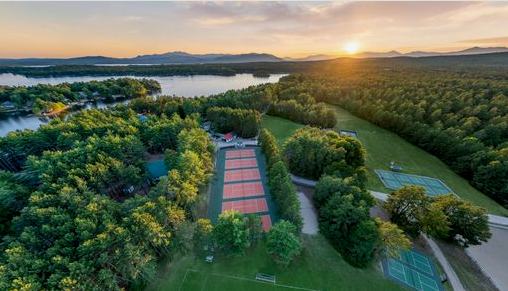
As screen time becomes a dominant part of daily life for many young people, those invested in their development are reflecting on its impact on how children grow, play, and connect with others. Digital devices have brought incredible convenience and creativity into everyday life. Yet, they also reshape how time is spent and how relationships are formed. New Hampshire's Camp Robin Hood views this evolving landscape with care. It recognizes that while technology can empower, moments away from it can offer something equally valuable: the chance to slow down, connect, and rediscover what shared experience feels like.
Camp Robin Hood notes that young people now spend more time than ever on digital media. A nationally representative survey of over 1,300 U.S. teens found that platforms, such as YouTube, TikTok, Instagram, and Snapchat, remain widely used. Some teens report near-constant use. "We believe that online interaction may sometimes reduce opportunities for spontaneous play or in-person connection," says Richard Woodstein, owner and director of Camp Robin Hood.
Indeed, conversations around how children navigate digital and physical spaces continue to evolve. Activities like teamwork, spending time outdoors, and collaborating face-to-face are often seen as valuable ways for young people to strengthen social skills and self-assurance. This understanding helps explain why summer programs, like what Camp Robin Hood offers, still resonate with many today.

Established in 1927, Camp Robin Hood in Freedom, New Hampshire, has evolved alongside society while holding fast to its roots in community and tradition. Its 180-acre setting, framed by New Hampshire's White Mountain National Forest, provides a backdrop for a summer experience focused on belonging and personal growth.
"Almost all of our counselors were once campers themselves," Woodstein shares. "This continuity sustains our camp's culture of mentorship and mutual respect. We view tradition as giving children a stable foundation so they can grow with confidence in a world that's always changing."
Within that framework, the camp's days unfold with both structure and freedom. Campers choose activities that encourage creativity and skill development, from water sports and hiking to arts and crafts and community service projects. Away from their screens, children often find new rhythms. Think of conversations over shared meals, laughter during evening gatherings, and teamwork during games and excursions.
"These are simple experiences, but they help young people practice listening, cooperation, and resilience in ways that feel organic," Woodstein says. "They learn to be present with others, something technology can support but may not always replicate."
The heart of Camp Robin Hood's program lies in its philosophy of community living. Every day offers lessons in empathy and personal responsibility. Campers share cabins, take turns supporting one another, and engage in mindful practices that encourage awareness of others' needs.
Initiatives such as "Robin Gives Back Day" invite campers to learn from community members who contribute positively to the world around them. Similarly, Camp Robin Hood's "For the Needs of Others" retreat encourages teenagers to think about how their actions can make a difference beyond camp. These experiences remind participants that connection is an active choice, nurtured through kindness and shared effort.
Inclusivity is also integral to Camp Robin Hood's approach. Through support programs and outreach, the camp makes its experience available to children from various backgrounds. Woodstein says, "We believe every child deserves the chance to feel part of something larger than themselves, a community that values them for who they are." This commitment to access enriches the environment for everyone, creating a diverse and vibrant camp culture.
Camp Robin Hood's continued impact stems from the consistency it offers amid constant change. While the world moves quickly, the camp's traditions, such as its Fourth of July celebrations, give children a sense of continuity and belonging. At the same time, lessons in sustainability and environmental awareness help connect timeless values to modern priorities. Campers learn that caring for the planet can begin with simple, daily habits such as composting, recycling, and mindful consumption. "Last summer, those small efforts added up to substantial waste reduction. This is one way we show that collective action can lead to meaningful results," Woodstein shares.
In many ways, Camp Robin Hood serves as a bridge between the digital and natural worlds. Nearly a century after its founding, the camp has opened every summer since, including through World War 2, the Polio outbreak, and the most recent COVID-19 pandemic where they built a protective bubble for 412 people. Robin Hood has welcomed children from around the globe to escape the outside world, and live in a place guided by the belief that childhood thrives on both innovation and timelessness. Woodstein states, "We live by the mantra of making us ever-mindful for the needs of others. That skill is what we want our children to take to the outside world."







